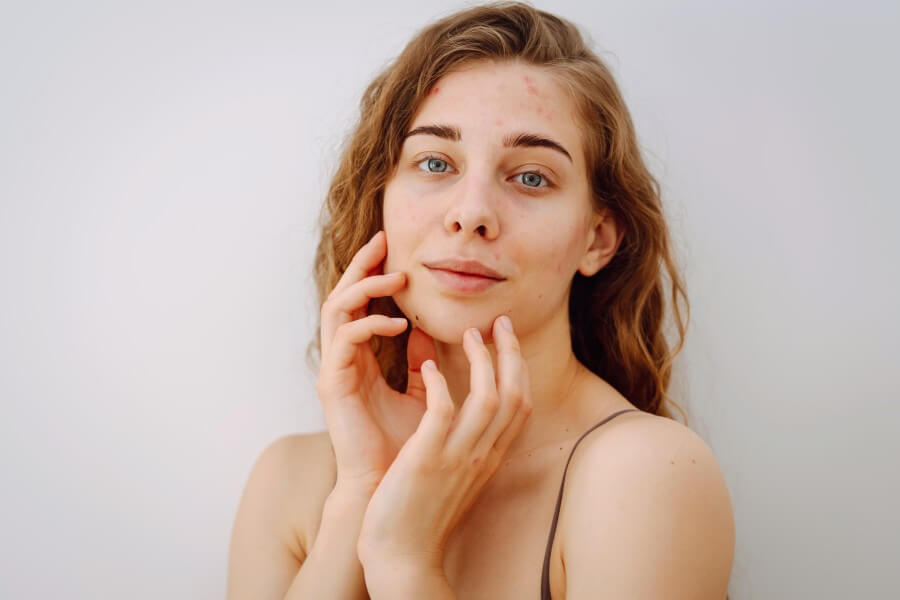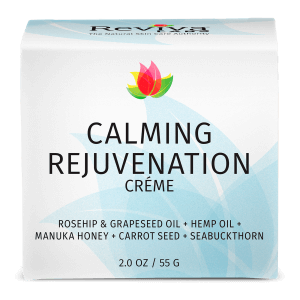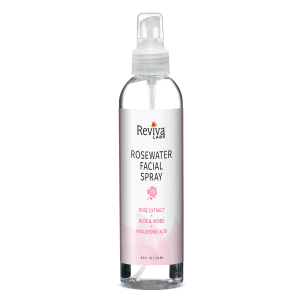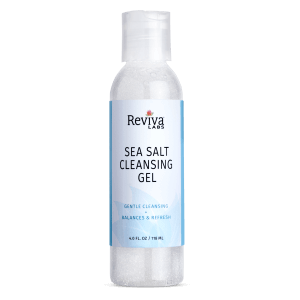Reviva Labs, Skin Care
Understanding Rosacea and Effective Treatments
Rosacea is a chronic skin condition that predominantly affects the face, causing redness, visible blood vessels, and sometimes acne-like bumps. While its exact cause remains unknown, several triggers are well-documented, including sun exposure, stress, hot or cold weather, spicy foods, alcohol, and hot beverages. Understanding how to manage and treat rosacea can significantly improve the quality of life for those affected.
Identifying Rosacea Symptoms
Rosacea commonly begins with a tendency to blush or flush more easily than others. Over time, redness can become more persistent, particularly in the central part of the face. Small blood vessels on the nose and cheeks often swell and become visible. Additionally, some people develop acne-like breakouts. More severe cases can lead to thickened skin, especially on the nose, and eye problems such as dryness, irritation, and swollen, reddened eyelids.
Gentle Skin Care Routine
One of the most crucial aspects of managing rosacea is maintaining a gentle skincare routine. People with rosacea should use mild, non-irritating cleansers and avoid products containing alcohol, witch hazel, menthol, peppermint, and eucalyptus oil. These ingredients can exacerbate redness and irritation. After cleansing, applying a moisturizer suited for sensitive skin helps maintain the skin’s barrier function, preventing dryness and irritation.
Topical Treatments
Topical treatments are often prescribed to reduce redness and inflammation. Metronidazole, azelaic acid, and ivermectin are common medications applied directly to the skin. These treatments work by reducing inflammation and the number of mites on the skin’s surface, which are thought to contribute to rosacea symptoms. Consistency is key, as it may take several weeks to see noticeable improvements.
Oral Medications
For more severe cases, oral medications may be necessary. Antibiotics such as doxycycline are often used for their anti-inflammatory properties rather than their ability to kill bacteria. In some cases, doctors may prescribe low-dose isotretinoin, a medication used for severe acne, which can also help manage rosacea. These medications can provide significant relief but require close monitoring by a healthcare professional due to potential side effects.
Laser and Light Therapies
Laser and light-based therapies offer a non-invasive option for treating visible blood vessels and persistent redness. These treatments target blood vessels with intense light pulses, causing them to shrink and fade. Multiple sessions are usually required for optimal results. Studies have shown that these therapies can be highly effective in reducing redness and improving the appearance of the skin. However, they can be expensive and are not always covered by insurance.
Lifestyle Modifications
Lifestyle changes can also play a significant role in managing rosacea. Identifying and avoiding triggers is essential. Keeping a diary of flare-ups can help pinpoint specific causes, whether dietary, environmental, or stress-related. Sun protection is critical, as sun exposure is a well-known trigger. Using a broad-spectrum sunscreen with SPF 30 or higher every day, even on cloudy days, can help prevent flare-ups.
Dietary Considerations
Certain foods and beverages are known to trigger rosacea symptoms. Spicy foods, hot drinks, and alcohol, particularly red wine, are common culprits. Adopting a diet that minimizes these triggers can help manage symptoms. Some studies suggest that a diet rich in omega-3 fatty acids, such as those found in fish and flaxseed, may help reduce inflammation and improve skin health. Staying hydrated and eating a balanced diet rich in fruits and vegetables also supports overall skin health.
Managing Stress
Stress is a significant trigger for many rosacea sufferers. Techniques such as mindfulness, yoga, and meditation can help manage stress levels. Regular physical activity is also beneficial, but it’s important to choose exercises that don’t cause overheating or excessive sweating, as these can trigger flare-ups. Gentle activities like walking, swimming, and low-impact aerobics are excellent options.
Eye Care for Ocular Rosacea
Ocular rosacea affects the eyes and eyelids, causing symptoms like dryness, irritation, and redness. Proper eye care is crucial for those with this form of rosacea. Using artificial tears can help alleviate dryness, while regular cleansing of the eyelids with a gentle cleanser can reduce irritation. In some cases, doctors may prescribe antibiotics or other medications to manage symptoms.
Emerging Treatments and Research
Research into rosacea treatments is ongoing, with new therapies continually being explored. Recent studies have looked into the use of probiotics, both topically and orally, to help manage rosacea symptoms. Probiotics are believed to improve the skin’s barrier function and reduce inflammation. Other emerging treatments include the use of botulinum toxin (Botox) and various natural remedies. While more research is needed, these treatments offer hope for improved management of rosacea in the future.
Statistical Insight
Rosacea affects an estimated 16 million Americans, highlighting the importance of effective treatment options. This statistic underscores the widespread nature of the condition and the need for continued research and education to help those affected.
Consulting a Dermatologist
For anyone struggling with rosacea, consulting a dermatologist is essential. A dermatologist can provide a personalized treatment plan based on the severity of the condition and individual triggers. They can also monitor progress and make adjustments to the treatment regimen as needed. With professional guidance, managing rosacea becomes much more achievable.
Rosacea is Manageable
Rosacea is a manageable condition with the right approach. A combination of gentle skincare, appropriate medications, lifestyle adjustments, and professional guidance can significantly reduce symptoms and improve quality of life. While there is no cure for rosacea, effective management strategies can help individuals lead more comfortable, confident lives.
By staying informed and proactive, those with rosacea can navigate their treatment options and find relief from the symptoms that affect them daily.










